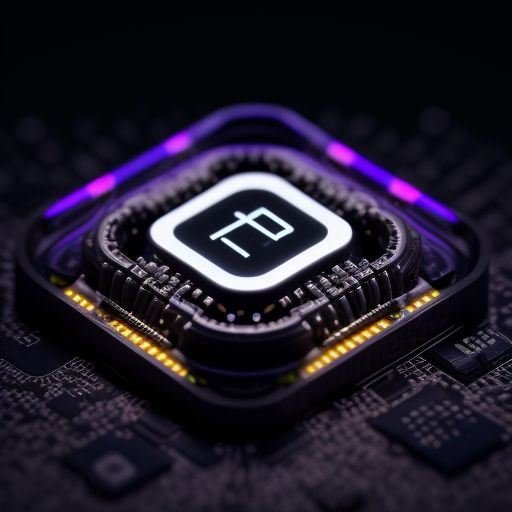While ensuring a gargantuan leap forward in performance and in terms of privacy, moved from the M2 chip to the much stronger M4 chip for its AI cloud infrastructure, these are not hardware upgrades. Instead, this is part of a strategic play to position Apple at the forefront of AI innovation in the realm of cloud computing.

Performance Leap: The M4 Processor
M2 Ultra so far has been powering Apple’s AI cloud services, but the M4 is going to change everything that Apple does in AI. The M4 chip is going to enhance how Apple can handle complex AI workloads and thus make their AI operations faster. This will be on a tear that boosts everything from machine learning tasks to real-time data processing, making Apple’s cloud services faster and smarter.
Comparison of M2 vs M4 Chips
| Feature | M2 Chip | M4 Chip |
|---|---|---|
| Processing Power | High, suitable for current AI tasks | Significantly faster, optimized for complex AI workloads |
| AI Performance | Handles basic AI tasks well | Designed for intensive AI tasks, improving speed and accuracy |
| Energy Efficiency | High, suitable for mobile devices | Enhanced for larger-scale AI cloud operations without excess power usage |
| Security Features | Basic security measures | Advanced, with integrated privacy features like end-to-end encryption for AI data |
| Cloud Compatibility | Supports cloud-based AI | Optimized for future AI-driven cloud systems, improving scalability |
And Privacy sits at the heart of Apple’s cloud
Main selling point for Apple’s cloud AI infrastructure is that it builds upon privacy. Modules of Private Cloud Compute by Apple ensure secure processing of data: end-to-end encryption, and not access to personal data-not even by Apple. M4 will continue to strengthen that secure processing to make faster speeds yet without the compromise on the side of privacy. It is this very balance between performance and security that increasingly complex tasks in AI would demand to secure the trust of users.
Key Benefits of Apple’s Private Cloud Compute (PCC)
| Benefit | Description |
|---|---|
| Enhanced Privacy | User data is encrypted end-to-end; only the user has access. |
| Local and Cloud Processing | Intelligent use of both on-device and cloud processing to optimize performance and privacy. |
| Scalable Architecture | Ability to handle large-scale AI tasks in the cloud without compromising speed. |
| No Data Access by Apple | Apple’s design ensures that personal data is inaccessible to anyone, including Apple itself. |
| Future-Proof Technology | Built to scale as AI and cloud technologies evolve, keeping pace with future needs. |
Scaling the AI Cloud: Why Taiwan Matters for Apple
Taiwan’s tech talent, as well as its advanced semiconductor capacities, will be paired up with Apple in building new AI servers by Taiwan’s Foxconn. This will allow Apple to accelerate the scaling of its AI cloud infrastructure and respond to surging demands for more powerful AI services. For example, Taiwan’s role will stand strong for Apple as it persists in looking at integrating the M4 chip to its systems.
Impact of M4 Chip on Apple’s AI Cloud Services
| Impact Area | Current Scenario (M2 Chip) | Future Scenario (M4 Chip) |
|---|---|---|
| Processing Speed | Capable of processing standard AI tasks in the cloud | Will drastically reduce latency, speeding up real-time processing of AI tasks |
| AI Task Scalability | Handles moderate AI workloads | Supports scaling to meet the needs of more complex AI models |
| Cloud-Based Applications | Limited expansion in AI-driven applications | Enables expansion into more advanced AI-driven services and features |
| Privacy & Security | Good security with encryption, but limited by hardware | Enhanced security architecture with the M4 chip, ensuring more advanced protection |
The Future with M4
Chip M4: Not some minor iteration; it’s the beginning of a new chapter for AI-powered Apple services. Already, it promises an advanced version, such as M4 Ultra. And the company is planning for future times when AI-related tasks will be completed at unprecedented speeds, all with Apple insisting on privacy.
M4 Chip Variants Overview (Pro, Max, Ultra)
| Variant | Target Use Case | Key Feature |
|---|---|---|
| M4 Pro | High-performance AI tasks, gaming, and mobile computing | Optimized for balance between power and efficiency |
| M4 Max | Enterprise-level AI applications, including cloud computing | Focuses on extreme performance and speed for massive data processing |
| M4 Ultra | Future AI and cloud innovations, cutting-edge technology | Potential for unprecedented processing power, suited for AI and machine learning models at scale |
Conclusion: The Bold Vision of AI at Apple
The Apple M4 is an innovation that is steering the world through AI clouds. Advanced performance with minimal surveillance-that is a discovery for this processor. Cloud computing, by AI, now has a new definition courtesy of this processor. Since AI is increasingly used in features of the Apple ecosystem, the use of M4 chip will, no doubt push the processes faster, smarter, and more secure for users in today’s times and for those in the future.
- The M5 Vision Pro: Game-Changer or Just Hype? An Analysis for Early Adopters - November 7, 2024
- From M2 to M4: What Apple’s New AI Cloud Upgrade Means for the Future of AI - November 7, 2024
- Samsung’s Next Big Move in AR: How 2025’s Glasses Might Outshine Apple and Meta - November 6, 2024